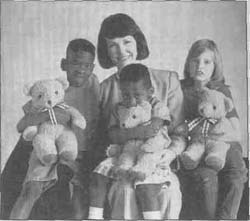Innovations
Joe Damal, SCC's executive director, says they have implemented a public information campaign to encourage citizens to first call 911 to report any crimes or suspicious activities they witness. After alerting police, people are asked to then call the hotline. Damal says the data the community group collects will be compared to police arrests to learn whether arrests are being made in areas where people are reporting the most criminal activity. He says the hotline information should show police where to focus their attention. Damal says the hotline should also enable the community to monitor how citizens are using 911. He says some people are afraid to call 911 for fear of reprisals if police are seen coming to their homes. The hotline will initially concentrate on an area around Chicago Lawn, where SCC is based, but Damal says other hotlines may be set up in neighborhoods extending to Gage Park, West Lawn and West Englewood, depending upon community response. Beverley Scobell
Argonne chemist, Dieter Gruen of Downers Grove, inventor of the technology, says that growing the diamond films six times faster can reduce costs as much as 75 percent. That, he says, makes new applications economically attractive. Possible applications for less expensive diamond film coatings include faster computer hard drives and replacements for silicon in computer chips that operate athigher temperatures. According to the Argonne National Laboratory, the projected market for diamond films is $4.5 billion annually by the end of the decade. Argonne, operated by the University of Chicago for the U.S. Department of Energy, has proven again that basic research pays off in practical applications. However, as recently demonstrated by the termination of the Integral Fast Reactor project that ends a decade of research and will cut 500 jobs at the lab in Illinois, scientists often find that legislators who control funding for basic research seem unwilling to think too far into the future.
James A. Smithson, director of environmental affairs at Illinois Power, says the outdoor classroom is part of the company's commitment to educating students in their service area about the environment. He says as many as 1,000 students may visit the site each year once it's finished. The Illinois Department of Conservation has been involved with planning, funding and supplying trees and native plants for the restoration projects. Illinois Power's first outdoor classroom is in Granite City. This nature area is available to more than 8,000 students in an urban setting to participate in the study and management of a natural environment and ecosystems.
"When children are taken from their home in a time of crisis, they often leave with few, if any, personal belongings," says Mrs. Edgar. "P.J. Huggabee will be a friend to these children as they begin the sometimes scary journey toward placement with a loving family." The P.J. Huggabee bear was created by Marshall Field's as part of Brenda Edgar's Help Me Grow campaign. The bears will be sold for $20 each at all of Marshall Field's Illinois stores. For each bear sold the company will donate a bear to the Illinois Department of Children and Family Services (DCFS) to give to children being taken into protective custody. In addition to providing a sense of security and companionship during a traumatic time, the bears also carry a public service message. Each bear will include a brochure detailing the different types of child abuse, how to prevent it and where to go for help. The brochure also provides a toll-free number, 1-800-323- GROW, for information about state programs affecting children and families. Field's president Daniel J. Skoda believes the store will sell out its initial shipment of bears by the end of the year, creating a donation of $100,000 worth of bears to DCFS.
4/September 1994/Illinois Issues
|
|||||||||||||||

